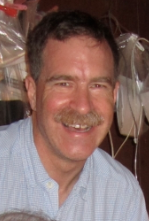
Brad’s advocacy for what is now ACG dates to Dan Janzen’s visionary 1986 proposal: Guanacaste National Park (GNP): Tropical Ecological and Biocultural Restoration. The next year, as a Stanford University medical student, Brad walked the 10km into Santa Rosa National Park from the PanAmerican Highway through thousands of hectares of six-foot kindling-dry jaragua pasture and occasional clearings of "Janzen's” bullhorn ant acacias under a dry season sun. He apprenticed to Dan and Winnie while Costa Rica President Óscar Arias decreed GNP: fighting fires, cutting a trail to Volcán Cacao’s summit, and helping guide the first OTS (Organization for Tropical Studies) course to visit the Islas Murciélago. Parataxonomists replaced volunteers, and Brad returned to Guanacaste to direct a Stanford Overseas program, and then to complete a health status/access assessment of GNP employees and field stations. In 2007, Brad accompanied Dan, Winnie, and Paul Hebert when they introduced DNA barcoding to the San Francisco Bay Area.
A Palo Alto native, Brad studied the history of science at Harvard, writing his thesis on scientific and institutional themes in ecology. After a Stanford Emergency Medicine residency and an administrative fellowship, he gained experience guiding large medical group practice, Emergency Department management and quality improvement, professional society leadership, and political advocacy. An advisor to the International Barcode of Life and the Kyoto Symposium Organization, Brad has conceived and completed biodiversity projects with a wide variety of public and private institutions, corporations, and civic and commerce leaders.